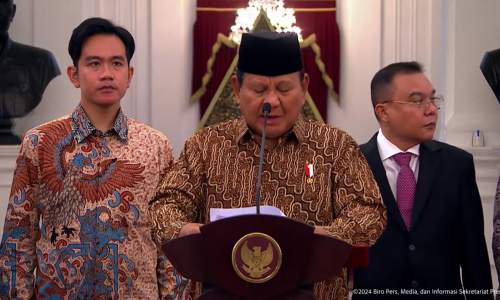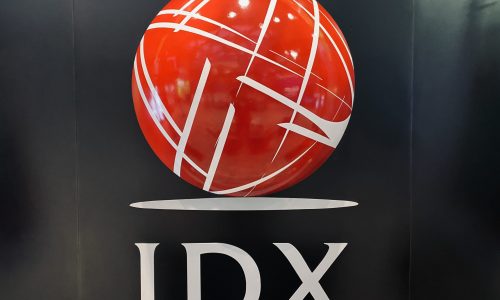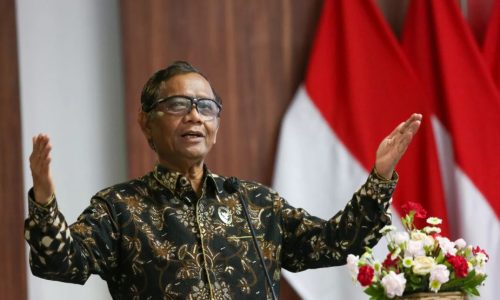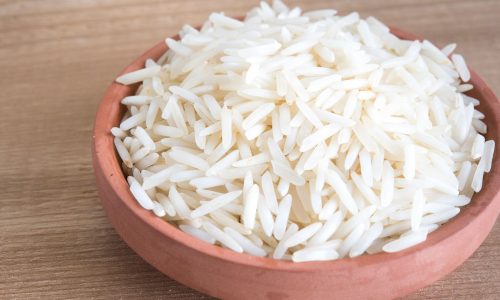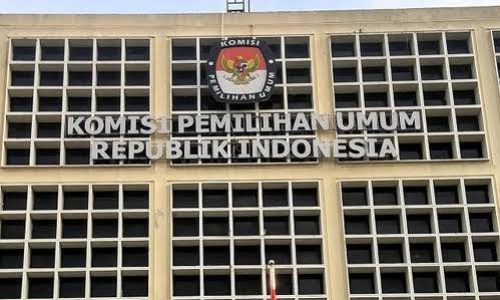Indonesia will have the largest Islamic Financial Center in ASEAN with the topping of the Syariah Tower in Pantai Indah Kapuk (PIK) 2 in North Jakarta on August 23, 2022. It is, somehow, contradicts to the fact that majority Muslims in Indonesia still use conventional banking, instead of sharia banking.
Designed by international designer DP Architects Ltd, the 29-floor Syariah Tower can accommodate up to 5,000 employees. The center itself is built on a 23.5-hectare plot of land.
With 231.06 million of 270 million population are Muslims, the support for sharia banking remains low according to the Royal Islamic Strategic Studies Centre (RISSC) in 2022. Fitch Ratings in April 2021 said that sharia banking support only reached 7% in 2020, an increase from 6% in 2019.
Lack of domestic support
“It [the support] has been growing yet it is at a very slow, snail’s pace,” said Fauziah Rizki Yuniarti, a lecturer from the School of Economics and Business at the University of Indonesia (UI) and an Islamic economic researcher at the Institute for Development of Economics and Finance (Indef).
The Islamic bank’s assets in Indonesia had grown fast to 9.5% while conventional ones at 5.9%. Its assets worth IDR609 trillion by 2020. While data from the Financial Services Authority (OJK) said its growth has risen to 15.7% in 2021 compared to the conventional ones which only reached 7.7%. This year, the Islamic banking asset came from a low base, yet it outpaced conventional banks in asset growth. It seemed this year, the sharia financial market is developing forward with enormous potential.
“Yet, it has an enormous potential… [It is like] a sleeping giant when it comes to the Islamic financial market,” said Raja Amir Shah Raja Azwa, CEO of HSBC Amanah Malaysia, as quoted by Asiamoney in October 2021.
Indonesia still lags behind ASEAN countries
Albeit Indonesia’s efforts to enlarge the sharia banking sector, it is still far from the expectation. As a comparison, Malaysia remains the best Islamic market in the region with assets reached US$570 billion in 2019. The neighboring country is only lagging behind Iran and Saudi Arabia.
Meanwhile, the share of the sharia banking market for 2020 reached 37%, a 2% increase from the previous year at 35%.
Another ASEAN member, the Philippines, started their Islamic banking act in August 2019 by creating Islamic banking units in the country. While Singapore issued ambitions toward becoming a worldwide center for Islamic finance. Meanwhile, Brunei Darussalam is one of the countries with the fast-growing issuance of Sukuk (Sharia-compliant bond).
In comparison, the sukuk in 2019 for Malaysia and Indonesia reached US$93 million and US$17 million, respectively. A year later in 2020, Malaysia’s sukuk increased to US$98 million compared to Indonesia’s US$15 million.
OJK said that Indonesia had low financial literacy, especially in Islamic finance, with an average of 38% nationally.
The need to encourage growth
The high proportion of small and medium-sized enterprises (SMEs) in Indonesia could give potential to Islamic banks by tapping the sector and developing these businesses. The government could also promote the sector by issuing SMEs to use sharia banks for capital market transactions. On the other hand, other methods could be used such as giving attention to tax treatments on Islamic investment and financing.
According to Yuniarti, another way is to utilize fintech due to the high use of smartphones among Indonesians as the people have switched to digital banking amidst the COVID-19 pandemic. However, lack of internet connectivity and speed may hamper the transition.
According to Arup Kumar Chatterjee, Asian Development Bank (ADB)’s principal financial sector specialist of the sustainable development and climate change department, the digitalization efforts give fresh access to efficient Islamic finance that broadens the available customers. Other sectors that could use Islamic finance such as trade, health and sharia-compliant tourism could boost the post-COVID economy recovery.
In the Global Islamic Economy Indicator report for 2020/2021, Indonesia ranks fourth in halal food, sixth for Muslim-friendly travel and third for modest fashion. While Islamic finance ranks 6th and pharmaceuticals and cosmetics also ranks 6th.
“The government realized that in order to grow it more, more needs to happen. It’s not just making the playing field level, but also trying to get the awareness of the supply side more and more,” explained Romy Buchari, Maybank Indonesia Head of Sharia Banking.
Aymane Doukali, head of Sukuk financing for the Asia Pacific at HSBC, said: “There is a clear understanding of the potential.”



